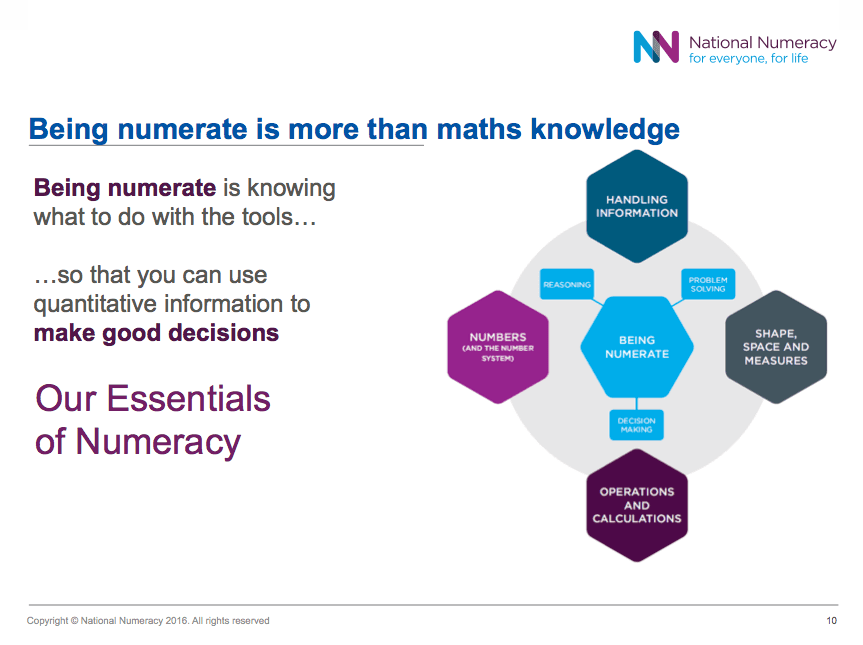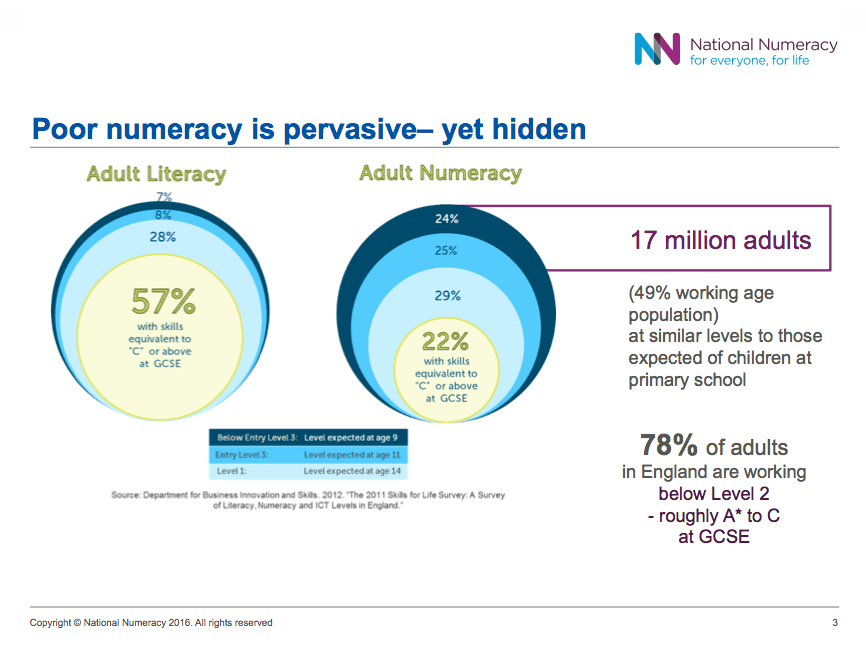Our UK advisory group meetings are always thought provoking. At our most recent, the National Numeracy (NN) team took centre stage and offered us some food for thought.

The words 'numeracy' and 'mathematics' have often been used interchangeably and are therefore often confused. The definition of numeracy used by NN is 'the ability to use mathematics in everyday life'. They further suggest that our assessment system tests 'complicated maths in simple situations' whereas real life requires 'simple maths in more complicated situations'. In reality this means that our ability to apply the maths we learned as school is, for many of us, flawed.

In fact it's really rather awful. A combination of negative attitudes towards the subject, coupled with a misplaced pride in an inability to do the maths (including by well-known broadcasters, politicians and other celebrities) means that our population as a whole is massively underfunctioning. NN state that 17 million adults in this country have numeracy skills at 'entry levels' - and this is roughly equivalent to the standards expected of children at primary school.
A quarter of 16-year-olds sitting maths GCSE will fail. Of those who pass, only a quarter will be still operating at the same level by the time they are 24, with the majority being unable to apply much of what they spent 11 years studying. This is surely cause for grave concern.
The UK context in which current learners operate is one of shifting ground. Now that everyone is going to be required to study some maths up to the age of 18, is the time ripe to reconsider what maths should be learned, how it should be tested, and when and how we test it? Cambridge Maths is committed to a world class maths education for all, including those for whom mathematics will only be used in their everyday life. To that end we are supporting National Numeracy in exploring whether adult numeracy differs from numeracy in the teenage years, whether 14 is an appropriate age to assess numeracy skills and understanding, whether any such assessment would fit with the existing maths curriculum, and what form an assessment might take.
Stop the presses: National Numeracy launches
its new app - StarDash Studios!